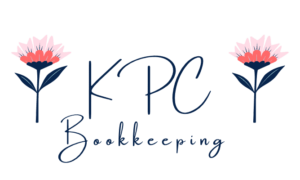Now I’ve talked about this before; I’ll talk about it again. I’ll shout it from the mountain tops until every business owner in the world knows to separate their business and personal finances.
Well, not really. If my ass got to the top of the mountain I’d probably take that moment for myself, thank you very much.
But ladies, for real, sometimes people ask me “When do I have to open a business bank account?” And I’m like, “Are you spending money on or making money from your business?” If your answer is yes, my answer is RIGHT NOW. Here’s why:
1. Legal and Tax Compliance
From a legal and tax perspective, keeping your business and personal finances separate is not just a recommendation – it’s a requirement. Mixing personal and business finances can lead to legal liabilities and tax complications down the line, potentially putting your personal assets at risk in the event of legal disputes or audits. By maintaining separate bank accounts and financial records for your business, you’ll ensure compliance with regulatory requirements and minimize the risk of costly penalties or fines.
2. Clarity and Accuracy
Separating your business and personal finances provides clarity and accuracy in your financial records, making it easier to track income, expenses, and cash flow for your business. By having dedicated business accounts and financial statements, you’ll be able to quickly and accurately assess the financial health of your business, identify areas for improvement, and make informed decisions about budgeting, spending, and investment.
3. Financial Planning and Budgeting
Maintaining separate finances allows you to develop and execute effective financial planning and budgeting strategies for your business. With clear visibility into your business income and expenses, you can create realistic budgets, set financial goals, and allocate resources strategically to support business growth and sustainability. Separating your finances also enables you to track business-related expenses for tax deductions, maximizing your potential tax savings and optimizing your overall financial strategy.
4. Professionalism and Credibility
Separating your business and personal finances demonstrates professionalism and credibility to clients, vendors, and financial institutions. It instills confidence in your business practices and financial management capabilities, enhancing your reputation and credibility in the eyes of stakeholders. By presenting clean and organized financial records, you’ll build trust with clients and partners, potentially leading to increased business opportunities and partnerships. It’s also great for your own mindset. When I went to the bank to open my business accounts, I was practically giddy, because it made me feel like a “real” business owner.
5. Personal Financial Protection
Maintaining a clear separation between your business and personal finances helps protect your personal assets in the event of business-related liabilities or financial challenges. By shielding your personal funds from potential business debts or legal claims, you’ll safeguard your financial security and peace of mind. Additionally, separating your finances can simplify personal financial management, making it easier to track personal spending, savings, and investments separate from your business activities.
Listen, being a business owner is hard, and we’re all busy. Amidst the hustle and bustle of this entrepreneurial life, it’s easy for lines to blur between your personal and business finances. If you occasionally charge a Starbucks to your business card or office supplies to your personal, not a big deal. Just don’t make it a habit. Maintaining a clear separation between the two is not just a best practice – it’s essential for the financial health and longevity of your business.
